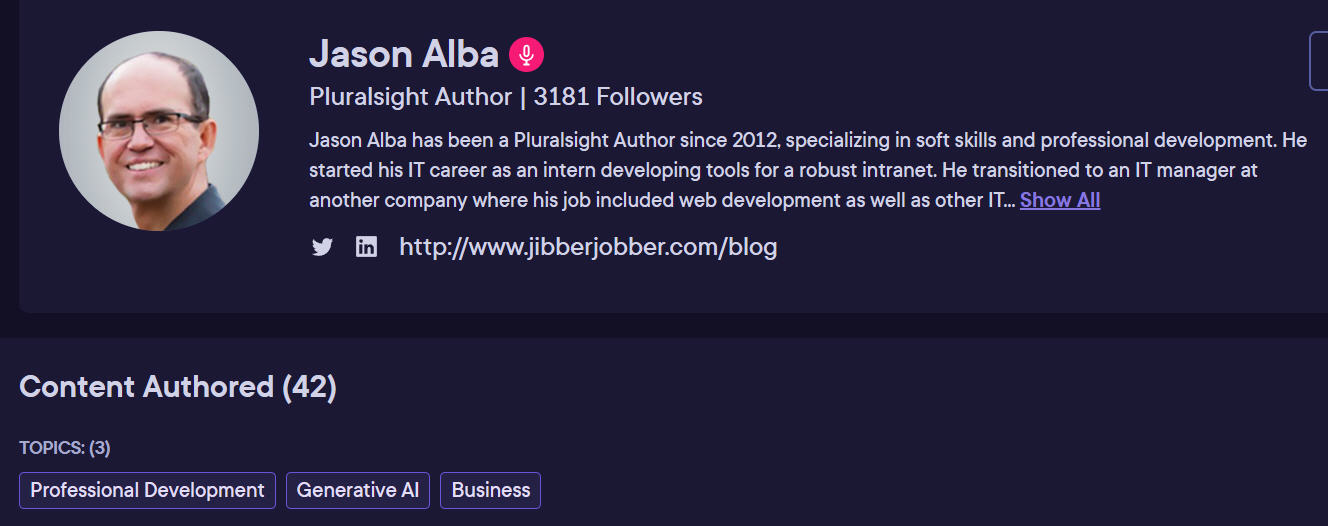If you have, or are working on, a degree, the last thing you want to read is a post talking about your useless college degree.
It’s not me who’s spouting this rhetoric. Oh, believe me, I have my own opinions about formal education. It doesn’t seem to be what it used to be, etc. etc. But instead of listening to me about a useless college degree, let’s hear what a VP at LinkedIn said in this post, titled The ‘shelf life’ of a college degree is ‘shrinking pretty dramatically in the age of AI, LinkedIn VP says:
“Over the past few decades, because of the internet age, when we think about workforce development, so much effort has been, understandably, on technical skills, computer science degrees, coding boot camps, educated and credentialed—technical skills,”… but now, “the shelf life of a degree is shrinking pretty dramatically.” – Aneesh Raman
Disheartening, isn’t it?
Or, maybe not. Maybe the thought of *not* spending tens of thousands of dollars and the next four to six years working on a degree, wondering if you are going to make a living wage, brings you some comfort.
I like this article, and quote, because they are simply presenting a healthy and important discussion about education not for education’s sake, but to question the educational system.
I’m not a college hater. I have an undergraduate degree and an MBA. I love that people who know what they want to do are driven to get the right education, which many times happens at universities. I applaud my friends who, as older adults, go back to school so they can progress in their careers. I did, however, still get laid off, even though I had all of this formal education.
I also know plenty of people who, for whatever reason, didn’t get a degree and are doing exceptionally well. Some of them make a ton of money. Many of them have skills and deliver value that others pay for, without a second thought to how “educated” they are.
The article talks about how things are changing so much with AI, and how even though there has been a huge focus on STEM (tech careers), the most important soft skill in today’s environment is “adaptability.”
Speaking of soft skills, how do you like this? Do you agree with this quote?
Soft skills like communication, creativity, and flexibility, the Harvard graduate predicts, will instead be what set employees apart in the workforce in the age of AI.
I have created over 40 soft skills courses on Pluralsight (see the Jason Alba courses here). I have been, and always will be, an advocate for soft skills. I want people to be more human and humane with ourselves and one another.
I can’t discount having the chops, though. Accompany your soft skills with some hard skill, whether it is a STEM skill or something like skills in finance, HR, acquisition, procurement, supply chain, product or project management, or what we call blue collar skills.
If you have something of value to do (think: “I can proficiently, efficiently do this job”) AND you have the soft skills so people actually like working with you, and want to send work (customers, etc.) your way, you should have an awesome career. Throw in adaptability, because the world always has changed, and will continue to change, and you might have this illusive idea we used to call “job security” (I call it income security).
Not All Degrees Are Useless College Degrees
If you are working towards your degree, or have a degree, don’t get hung up on the phrase “useless college degrees.” If you are still in school, think about what you are learning and doing to help you build your portfolio of hard and soft skills. If you are working on dreaded team projects, realize that you are building stories and experiences to help you be a better team player (which is a sought-after skill). Work on your study habits and use this time to practice interpersonal interaction.
If you have what you feel like is a useless college degree, take heart in the fact that you did something (got a degree), and that is in your past. No one can take that away from you (well, I guess there are exceptions, but that’s for another blogger to write about). Think about what skills you have, even what skills you learned/earned while you were working on your supposed useless college degree, and figure out what skills you should work on for a future of income security.
If you need the sheepskin, fine, get it. Work hard, learn a lot. But it won’t be the thing that saves you from layoffs or extended unemployment. Think about the value you can bring to a customer and work very hard to improve your skills in providing that value. This is the way forward, as the world changes and the things we learned in school (especially technical or procedural know-how) become less relevant.

